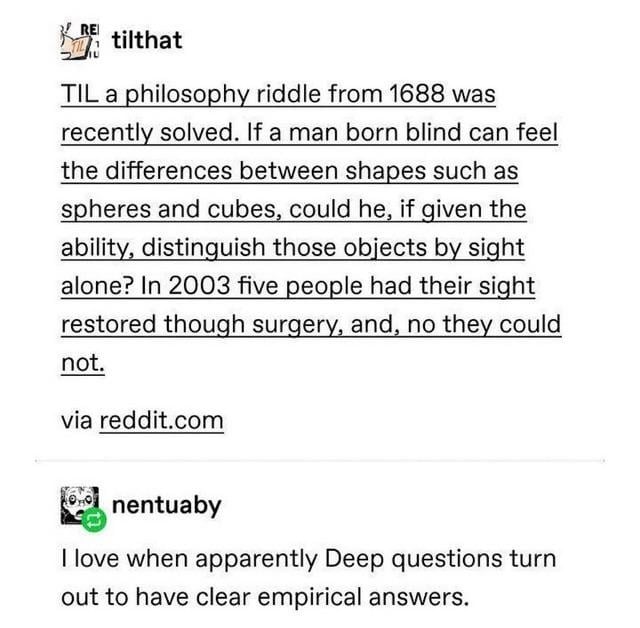This reminds me of the Kiki/Bouba effect with congenitally blind individuals (blind from birth).
Basically, sight is needed for people to associate the sharp shape with Kiki and the rounded shape with Bouba. People that are blind from birth don't really make this association, but after they gain sight they do!
There is something in our brains that links sound, the feel of a shape, and the visuals of a shape the same way for almost everyone, but it needs to actually experience them first to make the connection.
